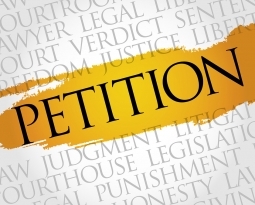Protecting your privacy during divorce
If your divorce is high-conflict and your spouse intends to gain the upper hand when it comes to child custody and support, spousal maintenance, and other contentious matters, then you want to give them as little ammunition as possible. This is why your post-separation digital communications need to be as private as possible.
Don’t assume that if you simply screen your Facebook friend requests, password-protect your online journal, or change the visibility settings on your tweets, your spouse will never see what you post or write. Once you hit the “submit” button, the risk is there, but there are things you can do to lessen the likelihood that they will find anything to use against you.
“Scrub” your social media
When you won that margarita-drinking contest in Costa Rica last year, you were only having fun on vacation. The judge doesn’t know that, however, and your spouse may try to use the Facebook photos as evidence that you have a drinking problem that could make you an unfit parent. Remove these and similar photos from your gallery and untag yourself from anything your friends may have posted.
Don’t send emails you wouldn’t want to be publicized
There are times when you will be sorely tempted to shred your spouse in emails to friends and family, but until the divorce is over, don’t send messages that you wouldn’t want your soon-to-be-ex to read. If someone forwards them to him or her, then you could find yourself in a lot of unnecessary bother. You want to prepare for a new life, not spent hours justifying things you said in your old one.
Tweet with discretion
Years ago, love letters and handwritten diaries were fodder for a nasty divorce action. Today electronic evidence fuels these lawsuits. An indiscreet tweet can come back to bite you in a custody battle or property division dispute, so keep all communications neutral. Even if you set your visibility to private, you never know which of your followers might be sharing what you tweet with your spouse.
Tighten your security settings
Accessing your email and social media accounts without your permission is illegal, but that doesn’t mean your spouse won’t do it. Change all of your passwords and answers to security questions. Then go through your Facebook friends list and remove anyone who could provide your spouse with access to your account.
If you’re in the process of divorce, then it’s always best to assume that anything digital communication you send could one day be read in court. Your Bronx divorce attorney will advise you on the best ways of protecting your rights and interests until the litigation is over and you are no longer under scrutiny. If you have any questions about divorce and privacy or need legal representation in a divorce or family court case, then contact the lawyers of Eskin & Eskin, P.C. They have over 40 years of combined experience and offer free consultations. They can be reached at 718-402-5204 or on the web at www.EskinAndEskinLaw.com.





